
“The enemy killed where the least money is currently allocated for culture”: what was discussed at the Cultural Recovery Forum
The forum “Cultural Recovery: Regional Dimension” aimed to develop ways to restore the cultural sector in the post-war period. The event was held on 18 August. Representatives of cultural departments, officials, cultural figures and activists gathered at the Korsaks’ Museum of Ukrainian Modern Art.
The forum took place in a mixed online and offline format and was divided into two panels. One of them was attended by a journalist from Rayon.Kultura.
The panel “Cultural Decentralisation” was moderated by Yulia Vusenko, a member of the Volyn Regional Council.
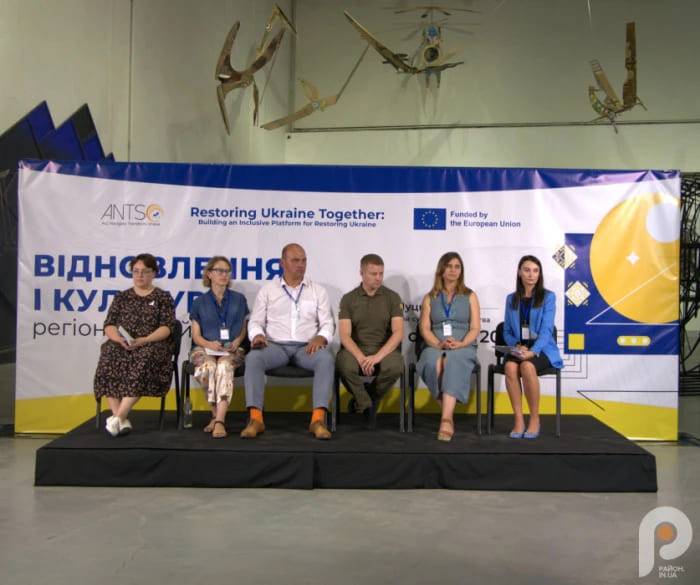
The Mayor of Rivne, Oleksandr Tretiak, said that he sees the main task as cultivating the paradigm of patriotism in all areas: culture, education, sports, business, and the economy. After all, this will contribute to the quality education of young people who will become the bearers of Ukrainian culture. Rivne decided to promote education to prevent the outflow of intellectual capital abroad.
In 2022, the medallists received UAH 5,000. To encourage students with the highest test scores to study at Rivne universities, they were offered a scholarship of UAH 45,000.
“In the first pre-war year, children from Rivne ranked third after Kyiv and Lviv in terms of the number of graduates with the best external independent assessment results. They are a golden resource that I am trying to protect. We try to motivate children, to make them understand that if they study well, they can earn good money,” said Oleksandr Tretiak, explaining the implementation model.
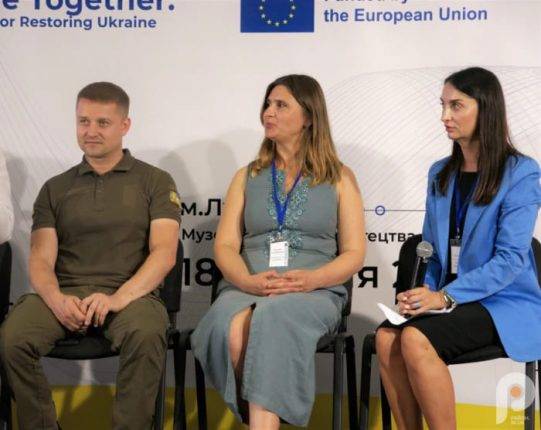
The mayor also said that when his team came to power in 2020, they analysed spending on culture. And for 2022, they budgeted three times more money than in previous years. However, the war destroyed all hopes of implementing the planned projects.
“We need to talk about culture in all aspects. Yesterday, I went to the Recruitment and Social Support Centre, and one thing surprised me. There was a woman sitting in the corridor who couldn’t wait for an explanation. Her husband is in the Ukrainian National Guard. He went missing. But it turns out that in the structure of the National Guard, there is no such thing as “missing”: either alive or dead. And no one can tell her what to do. This is also about culture and the challenges of war. And the recruitment process should also focus on a cultural attitude to a person,” says Oleksandr Tretiak.
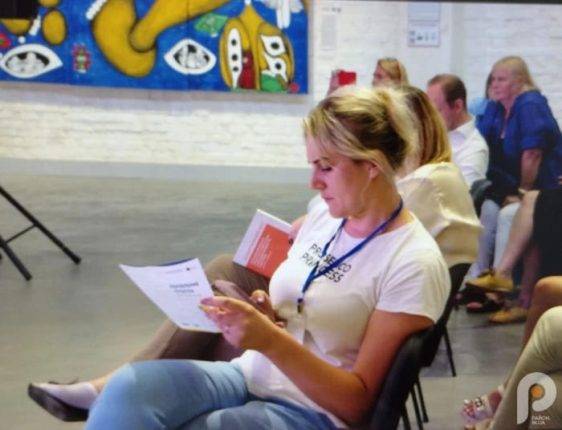
Volodymyr Shmatko, Mayor of Chortkiv, Ternopil region, stressed the importance of funding for culture.
“Whom did the Moscow enemy kill? Those who knew how to lead, who were leaders, who developed their talent. Such people were shot so that there would be no culture and no nation. Because a nation is a culture. Without history and culture, there is no nation. And where were they killed? Where, unfortunately, the least money is currently allocated for culture – Mykolaiv, Kherson, Donetsk regions…” Volodymyr Shmatko summed up.
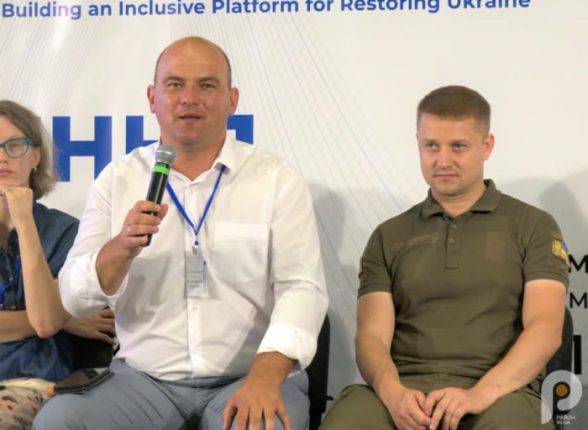
According to the former head of the Sumy Regional State Administration, Dmytro Zhyvytskyi, Sumy region has one of the smallest budgets in Ukraine. However, the largest percentage of the general fund is spent on culture.
“As the head of the regional administration, who led the region during the war, I can say that the importance of self-identification allowed us to hold the region. Where on 24 February there were no security services, no police, no military units – they were withdrawn from the region to the east – our self-awareness of our place in the world allowed us to hold the region,” said Dmytro Zhyvytskyi.
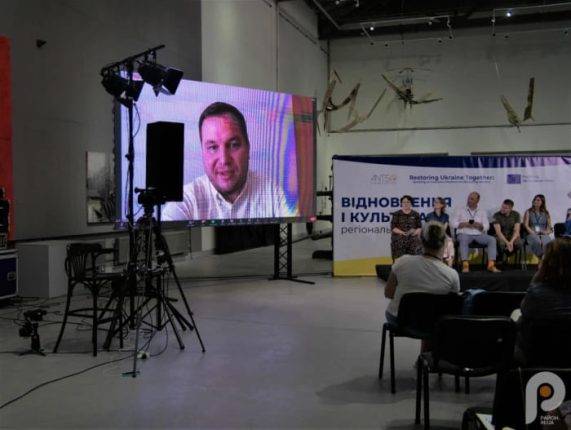
Dmytro Zhyvytskyi shared a practice introduced by the city administration in 2016. It is the separation of culture and tourism. Subsequently, Europe recognised this as one of the best practices. After all, tourism is about a specific financial capacity, and culture is about something completely different.
He recalled the words of the American economist Richard Florida: “When production falls in a territory, the creative class begins to rise”. It is the presence of cultural development that is a prerequisite for a country’s economic development.
“If the world starts to get tired of the war in Ukraine and aid, it will never get tired of Ukrainian culture and what we can tell about ourselves. We should not fund not walls or buildings but creative teams. We should support talented people and their projects, and export them,” explained the former head of the Sumy Regional State Administration.
Later, Yulia Khomchyn, Director of the Institute for Cultural Strategy, joined the online discussion. She said that even in our difficult times, it is worth making plans and strategies for post-war recovery. She also stressed that this task is for Ukrainians, not for foreign experts.
“No American or French expert will understand post-war reconstruction without having been to war. They are needed where we do not have the tools or the methodology. We need to have our own strategy with the involvement of foreigners,” said Yulia Khomchyn.
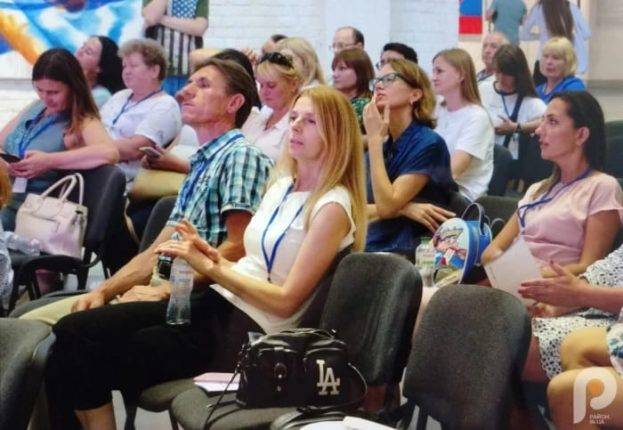
The director of the Institute of Strategy also spoke about the tools for financing culture in Lviv – the creation of a municipal cultural fund. This is a model of a municipal fund that allows the cultural community to compete for budget funds for their projects.
Liusyena Shum, Executive Director of the Library Country Charitable Foundation, shared her experience of a visit to Zhytomyr. There, she saw an example of a library network that earns more than UAH 200,000 a year from paid services. This is a trend that other cities should follow.
She also highlighted fundraising as another way to help cultural institutions. It provides material and non-material support to projects, thanks to their patrons.
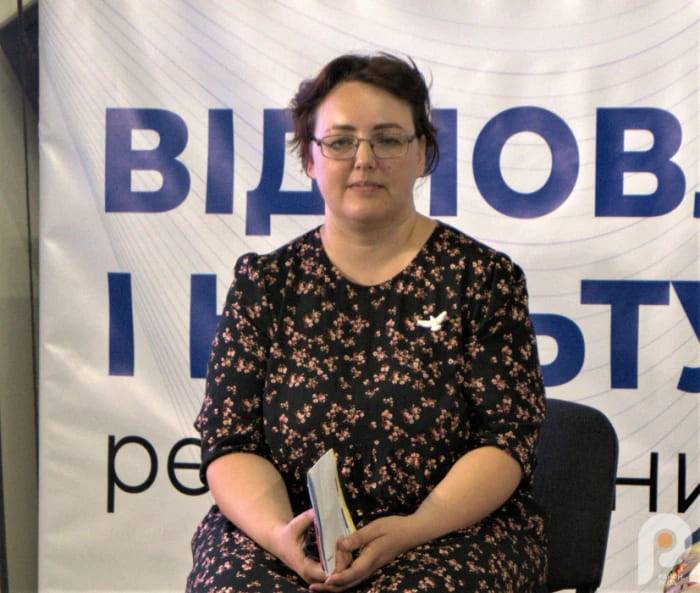
“Retired people in the UK regularly volunteer in museums and libraries. All libraries in the UK provide services worth £3.4 billion a year, which is six times the cost of running them. The return on investment is significant and libraries can demonstrate their importance,” said Liusyena Shum.
Liudmyla Fit, founder of the Cherkasy Book Festival and head of the Department of Culture of the Cherkasy Regional State Administration in 2020-2021, called for support for cultural workers.
“There are no tour guides in my town. The work has been done for more than a year by the school principal, the head of the Jewish community, and an associate professor who talks about birds… These people are our treasure and they need to be motivated,” said Liudmyla Fit.
Liudmyla Fit told her own story about why creative people should be encouraged to work in their hometowns. She organised four book festivals, bringing together more than 50 publishers. About 10,000 visitors came to the festival. The fifth festival was already expecting guests from abroad.
“The next festival was already in Kyiv. People wrote to me: “I’m crying. Why not in Cherkasy?”. I wouldn’t mind holding it in Cherkasy, but I have to be kept there. Of all the cultural activists, I am the only one left. My colleagues want to earn good money, so they left the business,” Liudmyla Fit said.
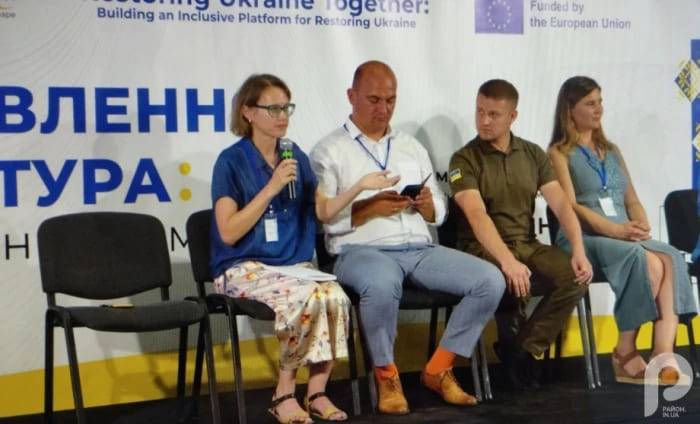
The former head of the Cherkasy Oblast State Administration also spoke about the difference in cultural development in Ukrainian cities.
“I went to Sloviansk. It’s a wonderful town: the military speak Ukrainian – I felt at home. But there are a lot of plaques saying ‘A hero of the Soviet Union lived here’ or with the words ‘Patriotic War’ instead of ‘World War II’. And in their beautiful park, there is a huge monument to a Soviet soldier, and a small stone in memory of those who died in 2014. We still have a lot of work to do. I could feel their culture in the air… But Lutsk has a plaque honouring the Heavenly Hundred Heroes, and I immediately caught a different energy of the city,” the cultural activist said.
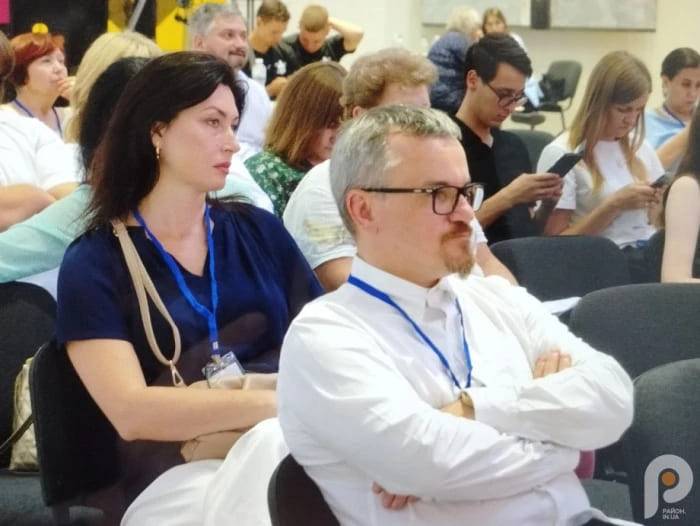
Uman also seemed strange to her. There were many Hebrew inscriptions on the streets. The former government official admitted that she did not feel at home, in Ukraine, because of the atmosphere of a different culture, and that is why she does not want to return to this town.
Finally, the museum’s founder, Viktor Korsak, spoke. He explained how to create and implement a strategy for a modern museum institution. He highlighted the key factor of success as a competitive advantage over competitors – the peculiarities of the concept, interior, exhibits, and image.
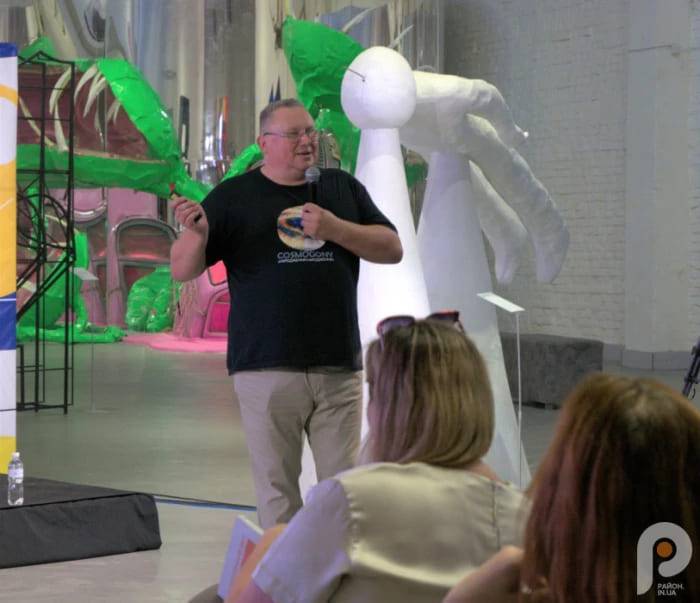
“The uniqueness of our museum is that we present works by artists from all regions and different periods. We have 3D tours and augmented reality programmes for paintings… The visitor wants to get something meaningful for the price of a ticket. It is also worth marketing through opinion leaders,” says Viktor Korsak.
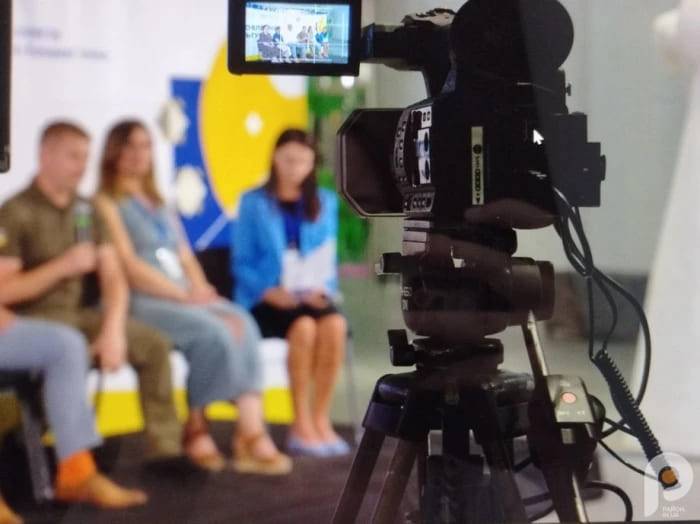
For information: The event was organised by the project of the ANTS National Interests Advocacy Network “Restoring Ukraine Together”. The project partner is the European Union.
Media, News, Publications
-
Ukraine – is a Eurointegration front-runner, – Deputy Ambassador of the EU
-
Deputy Ambassador of the EU on enlargement, reforms and €190 billion in support
-
EU membership in 2030? Deputy Ambassador of the EU answers students’ questions
-
How does the EU take decisions on Ukraine? Subsidiarity, unanimity and consensus among 27 countries
-
What reforms does Ukraine still need to join the EU? Deputy Ambassador of the EU answers
-
How can Ukrainian students become more involved in EU programmes and projects? Deputy Head of the EU Delegation answers